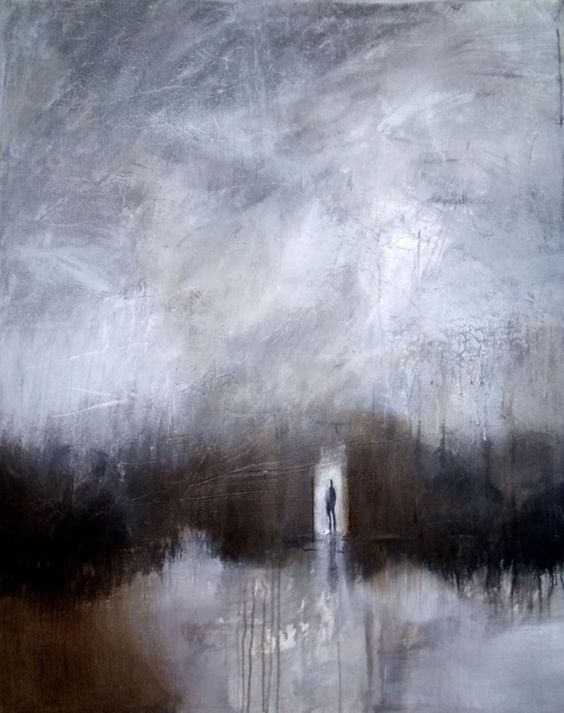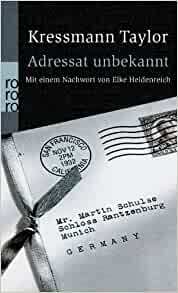Take a photo of a barcode or cover
challenging
dark
fast-paced
Plot or Character Driven:
A mix
Strong character development:
Complicated
Loveable characters:
No
Diverse cast of characters:
No
Flaws of characters a main focus:
Yes
While I understand the significance of this story being published in late 1938, I found it hard to believe in the characters, so I never got invested in the story. Perhaps if I hadn't predicted the ending (or something similar to it), I might've felt differently.
dark
emotional
relaxing
dark
emotional
sad
fast-paced
Plot or Character Driven:
Character
Strong character development:
Complicated
Loveable characters:
Complicated
Diverse cast of characters:
No
Flaws of characters a main focus:
Complicated
challenging
informative
sad
tense
fast-paced
Plot or Character Driven:
Character
Strong character development:
Complicated
Minor: Death
hopeful
informative
reflective
sad
medium-paced
Plot or Character Driven:
A mix
Strong character development:
Complicated
Loveable characters:
No
Diverse cast of characters:
N/A
Flaws of characters a main focus:
Complicated
dark
emotional
informative
sad
fast-paced
Plot or Character Driven:
A mix
Strong character development:
Complicated
Loveable characters:
N/A
Diverse cast of characters:
N/A
Flaws of characters a main focus:
Yes
Gosh, this short, tiny book has left me with so many thoughts about today. The election is around the corner, and being reminded of just how Hitler’s rhetoric invaded the minds of people is no longer ominous. It’s happening again.
Moderate: Murder
Minor: Physical abuse
Reading this article in The Guardian last week, which praises Address unknown as an anti-Nazi-novel that saw into the future, I admit I am frightened that the author is right concluding that the novel’s prescience is not confined to its time and saw into our own future too. In hindsight, it is this chilling perspective which makes the novel even more worth reading at present.
As originally published in 1938, this is a striking document as Kathrine Kressmann Taylor wrote on ordinary, liberal-minded and civilised people sliding into anti-Semitic barbarism even before the wave of violent pogroms which took place on November 9 and 10, 1938, known as Kristallnacht. According to her son’s foreword, the story is purportedly based on Kressmann’s bewilderment at the change of mind and heart of some American-German friends who had returned from Germany and since had disavowed former Jewish friends. As she worried about what she felt as the lack of awareness, care and insight in the US on the nature of Nazism, her journalistic instincts were triggered and her research on the regime resulted in this (fictional) account.
Address unknown consists of the (fictional) correspondence between two Germans who run an art gallery in California and start to write letters when Martin Schulse in 1932 returns to Germany with his family while his Jewish friend and business partner Max Eisenstein stays in San Francisco. From the letters unfolds a powerful and finely written short story documenting the disintegration of their longstanding friendship by the slithering down from liberalism into opportunism, ideological blinding and cowardice, ending up in cruelty and bitter, cold-blooded revenge. The brevity of the format – we get to read 19 short letters stretching from November 1932 to March 1934 – tells not to expect so much as a subtle portrayal of the characters (Martin’s, who next to the other abject opinions he will ventilate once settled in Germany, earlier on displays a vision on women as baby machines, might come across as rather caricatural), but the brutal denouement is nonetheless poignant and gut-punching.

Coincidentally this story turned out a timely tandem read with a recent thought-provoking essay [b:De eerste boze burger|37749332|De eerste boze burger|Arnon Grunberg|https://i.gr-assets.com/images/S/compressed.photo.goodreads.com/books/1514379456l/37749332._SY75_.jpg|59367209] by the Dutch writer Arnon Grunberg, a slightly philosophical pamphlet on migration and xenophobia which deals with certain psychological mechanisms at play – one of his central theses that the fear of the ‘newcomer’ in society parallels the anxiety of a jealous lover. He equals one’s love for one’s country with the pursuit of paradise, the pursuit of ‘the one’ not lover but place where one can live, which one can call home and call its own– so it belongs to one exclusively, like some people feel the need to consider their lover exclusively theirs – turning the newcomer into a threat and a rival and so spurring sentiments in the vein of one’s land, like one’s lover, shouldn’t be welcoming another lover, making one feel replaceable (according to Grunberg this fear of being replaced is a deeply embedded fear, referring to the chanting in Charlottesville in 2017 ‘Jews will not replace us’). Reading this essay written by an author having grown up in a family of Jewish immigrants, originally from Germany (his mother was a survivor of Auschwitz) for me made the reflections of Martin Schulse on the rise to power of Hitler and his views on the Jews which tune slowly to the regime’s only more haunting and frighteningly relevant nowadays.

Although I am aware comparisons of current times and mores with the 1930s are not to be made heedlessly (and in the small region where I happen to live seem to have become almost taboo since the rise to power of the Nationalists), this cynic tale could function as a cautionary read for anyone inclined to minimalize or gloss over the weight of words as being merely words when confronted with deliberately provocative tough statements of populist political leaders for instance taunting the ‘Gutmenschen’ offering shelter to homeless refugees in winter or sneering about the victims’ own responsibility when a child of two accompanying her migrant parents has been killed by a police bullet (startling assertions chilling me to the bone).
(Paintings by Sylvie Coupé Thouron)
As originally published in 1938, this is a striking document as Kathrine Kressmann Taylor wrote on ordinary, liberal-minded and civilised people sliding into anti-Semitic barbarism even before the wave of violent pogroms which took place on November 9 and 10, 1938, known as Kristallnacht. According to her son’s foreword, the story is purportedly based on Kressmann’s bewilderment at the change of mind and heart of some American-German friends who had returned from Germany and since had disavowed former Jewish friends. As she worried about what she felt as the lack of awareness, care and insight in the US on the nature of Nazism, her journalistic instincts were triggered and her research on the regime resulted in this (fictional) account.
Address unknown consists of the (fictional) correspondence between two Germans who run an art gallery in California and start to write letters when Martin Schulse in 1932 returns to Germany with his family while his Jewish friend and business partner Max Eisenstein stays in San Francisco. From the letters unfolds a powerful and finely written short story documenting the disintegration of their longstanding friendship by the slithering down from liberalism into opportunism, ideological blinding and cowardice, ending up in cruelty and bitter, cold-blooded revenge. The brevity of the format – we get to read 19 short letters stretching from November 1932 to March 1934 – tells not to expect so much as a subtle portrayal of the characters (Martin’s, who next to the other abject opinions he will ventilate once settled in Germany, earlier on displays a vision on women as baby machines, might come across as rather caricatural), but the brutal denouement is nonetheless poignant and gut-punching.

Coincidentally this story turned out a timely tandem read with a recent thought-provoking essay [b:De eerste boze burger|37749332|De eerste boze burger|Arnon Grunberg|https://i.gr-assets.com/images/S/compressed.photo.goodreads.com/books/1514379456l/37749332._SY75_.jpg|59367209] by the Dutch writer Arnon Grunberg, a slightly philosophical pamphlet on migration and xenophobia which deals with certain psychological mechanisms at play – one of his central theses that the fear of the ‘newcomer’ in society parallels the anxiety of a jealous lover. He equals one’s love for one’s country with the pursuit of paradise, the pursuit of ‘the one’ not lover but place where one can live, which one can call home and call its own– so it belongs to one exclusively, like some people feel the need to consider their lover exclusively theirs – turning the newcomer into a threat and a rival and so spurring sentiments in the vein of one’s land, like one’s lover, shouldn’t be welcoming another lover, making one feel replaceable (according to Grunberg this fear of being replaced is a deeply embedded fear, referring to the chanting in Charlottesville in 2017 ‘Jews will not replace us’). Reading this essay written by an author having grown up in a family of Jewish immigrants, originally from Germany (his mother was a survivor of Auschwitz) for me made the reflections of Martin Schulse on the rise to power of Hitler and his views on the Jews which tune slowly to the regime’s only more haunting and frighteningly relevant nowadays.

Although I am aware comparisons of current times and mores with the 1930s are not to be made heedlessly (and in the small region where I happen to live seem to have become almost taboo since the rise to power of the Nationalists), this cynic tale could function as a cautionary read for anyone inclined to minimalize or gloss over the weight of words as being merely words when confronted with deliberately provocative tough statements of populist political leaders for instance taunting the ‘Gutmenschen’ offering shelter to homeless refugees in winter or sneering about the victims’ own responsibility when a child of two accompanying her migrant parents has been killed by a police bullet (startling assertions chilling me to the bone).
(Paintings by Sylvie Coupé Thouron)
It was interesting to read this short story in letter form about the sudden and violent rise in antisemitism in Germany in the 1930's while reading Russell Hoban's Pilgermann at the same time. Pilgermann recounts the story of a very bizarre and dreamlike excursion accross Europe and accross centuries in search of an answer to the same question of antisemitism. But these two books are very different. And yet, there are similarities. Pilgermann is weighed down with masses of Hieryonimus Bosch type satire, while Address Unknown, though very simply stated, also relies a little too much on bald caricature. It left me feeling dissatisfied.





